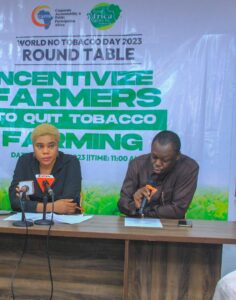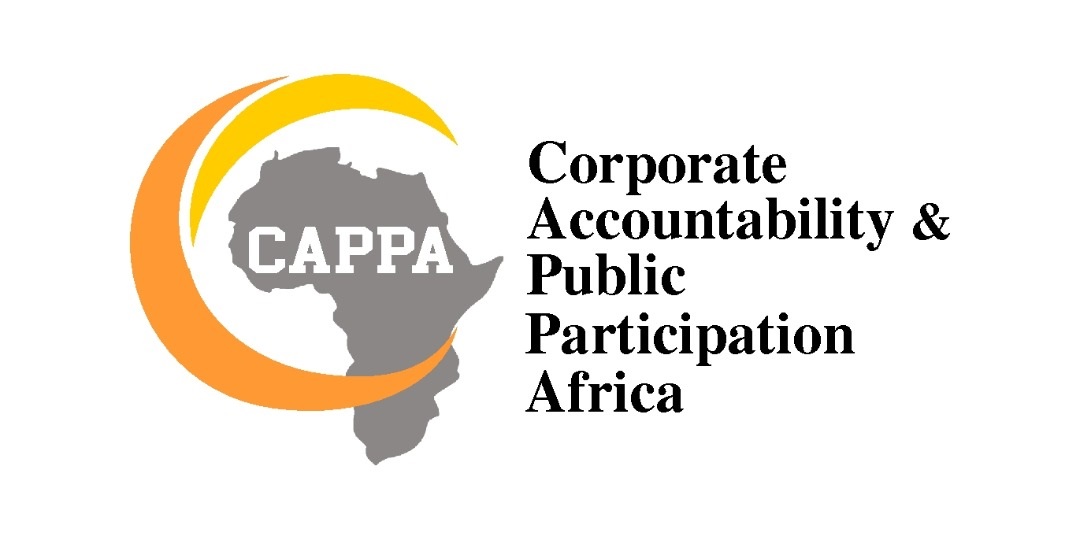The Corporate Accountability and Public Participation Africa (CAPPA) has called on governments across the country to provide support for farmers to boost agricultural production. Speaking at an event to herald the World No Tobacco Day, the Executive Director of CAPPA, Mr Akinbode Oluwafemi said this has become necessary to help their transition from tobacco to crop farming.
World No Tobacco Day is marked every May 31, as set aside by the World Health Organisation to call attention to the ills of tobacco cultivation and consumption. The theme of this year’s celebration is ‘We need Food, Not Tobacco”
Speaking during the programme, Mr Oluwafemi called on governments to include financial aid, affordable agricultural loans and insurance products as parts of their programmes to help the farmers and protect them from unforeseen losses.
He added that during a recent trip to the Oke-Ogun area of Oyo State, the main tobacco growing belt in the southwest region, the farmers shared their experiences expressed their frustration in getting government’s assistance to support their transition efforts.
He observed that the stories told by the former tobacco farmers highlight the regrettable truth of how the tobacco industry often treats these crucial contributors to their global supply chain as disposables. CAPPA, therefore, called on the government to Investigate the disengagement contracts the British American Tobacco (BAT) Nigeria signed with local tobacco farmers in view of a breach of the terms which some of the farmers alleged.
CAPPA also called for an audit of the total acreage allocated to tobacco farming in Oke Ogun, and the entire country to help the government determine the level of damage done to the environment. It also called for a verifiable afforestation programme in the entire Oke Ogun axis to make up for decades of depleted ecosystem.

In its eight-point suggestions, the non-governmental organization called on governments at all levels to set up and support the establishment of Farmers’ cooperatives to bolster their collective bargaining power when negotiating prices for crops and insulate them against market fluctuations.
It called for support of crop diversification programmes that can provide farmers with alternatives to tobacco farming, such as provision of resources to farmers to grow crops that are not only profitable but also sustainable and beneficial for the health of the land and people.
According to it, investment in local infrastructure such as irrigation systems, storage facilities, and transportation networks to aid the farming community would go a long way to helping farmers. It restated its stand on the harmful realities of tobacco cultivation which involves the use of pesticides that are harmful to tobacco growers, to the cutting and burning of trees for tobacco curing which leads to deforestation (about 3.5 million hectares of land are destroyed each year).
Also, CAPPA’s director of programmes, Mr. Philip Jakpor, emphasized that World No Tobacco Day “ is commemorated to raise awareness about the harms caused by tobacco products to people, public health, communities, the environment, and as recent evidence has shown, to the climate.”
He added that “The commemoration draws attention to the widespread prevalence of tobacco use and to its negative health effects, which currently lead to more than eight million deaths each year worldwide, including 1.2 million as the result of non-smokers being exposed to second-hand smoke.”
He said the WHO is raising awareness about the ways the tobacco industry interferes with attempts to substitute tobacco growing with sustainable crops, thereby contributing to the existing global food crisis.
He observed that “For us at CAPPA, the theme (We need Food, Not Tobacco) aligns with our conviction, which is supported by science, that tobacco cultivation processes from clearing of large tracts of land, cutting of trees for tobacco curing, and cigarette manufacturing, also contribute to the climate crisis and ultimately, threaten food security.”
He, therefore called on government to accelerate the implementation of Articles 17 and 18 of the WHO Framework Convention on Tobacco Control (WHO-FCTC) and its guidelines that outline how farmers can be supported from tobacco growing to sustainable alternative crops.


